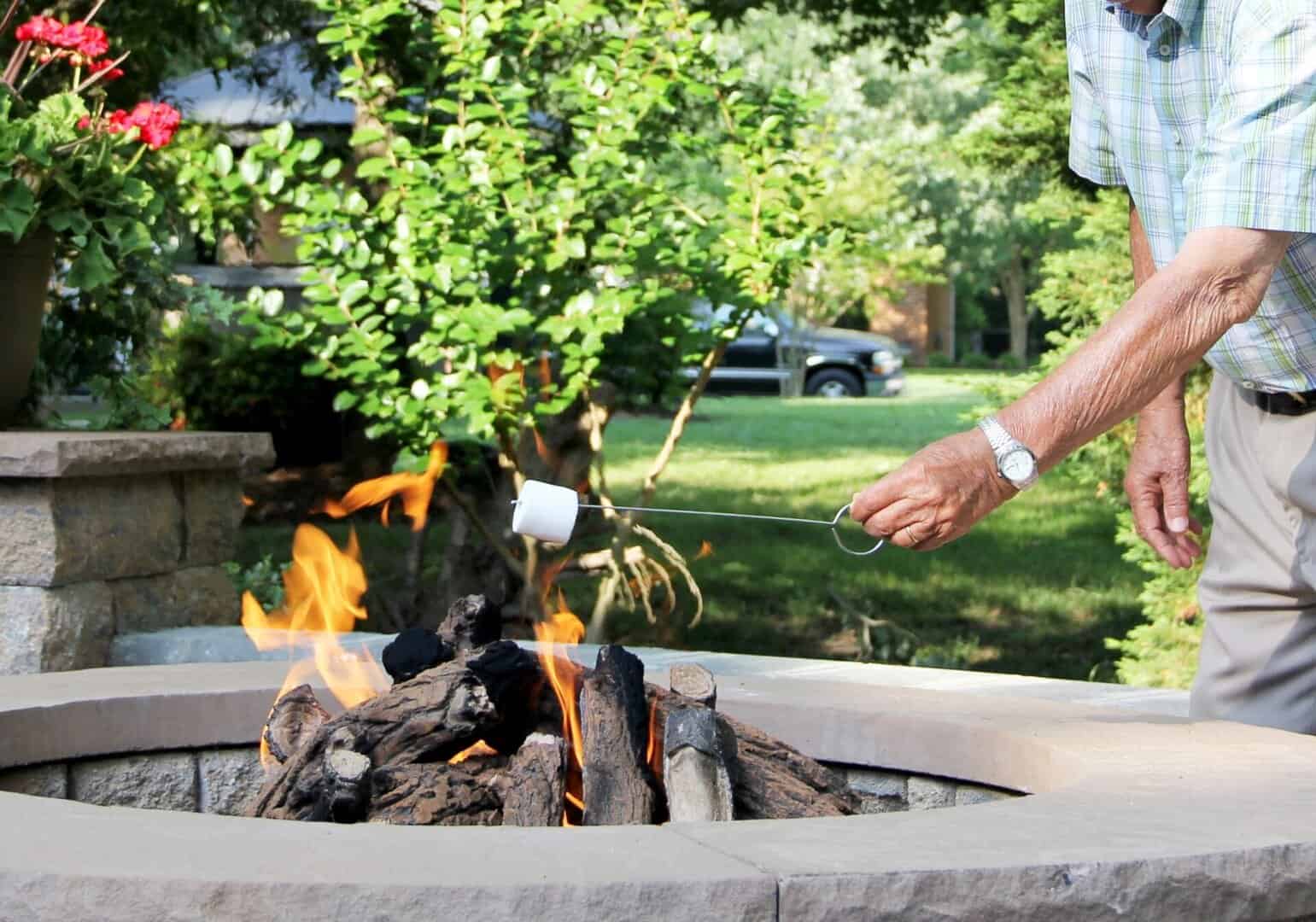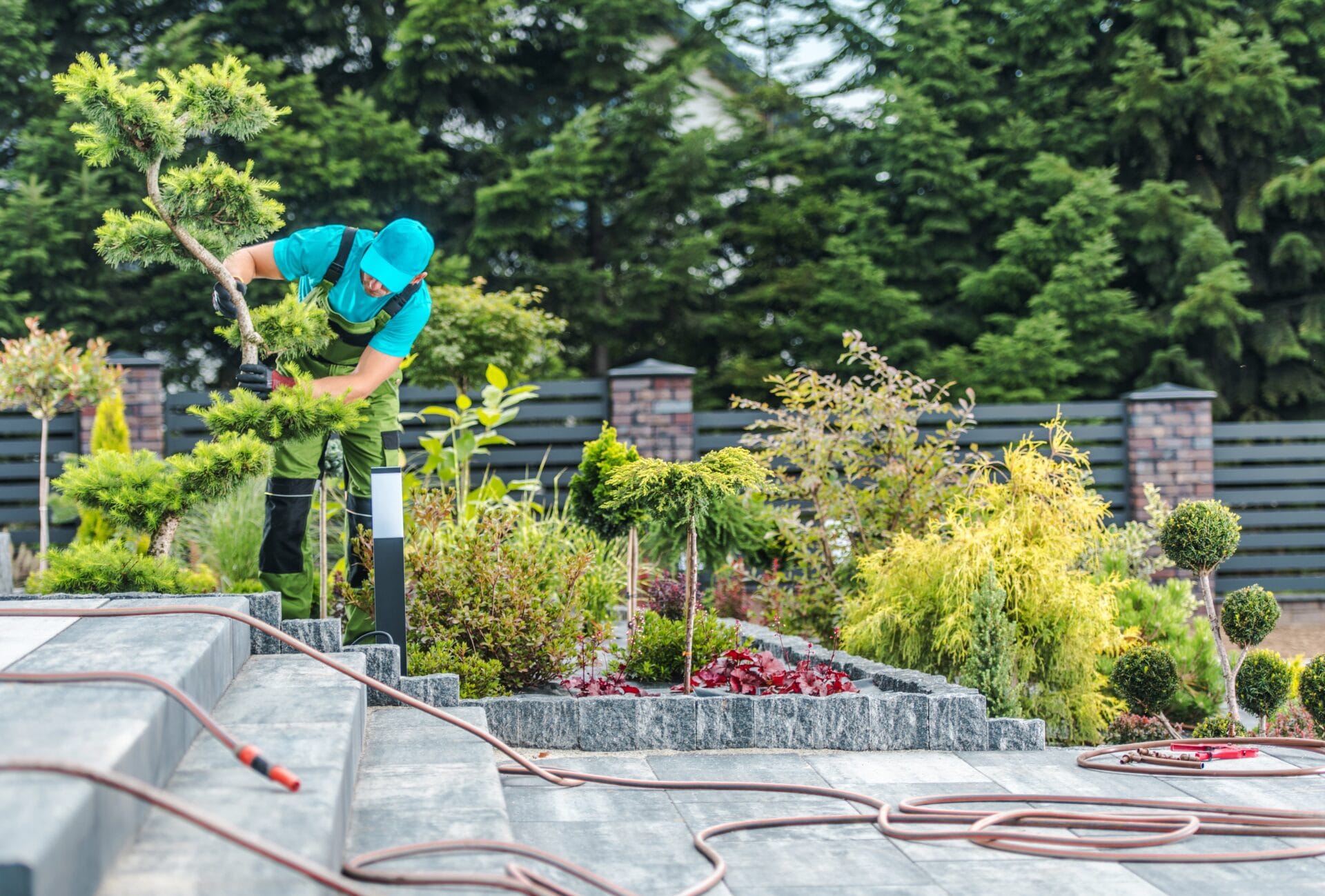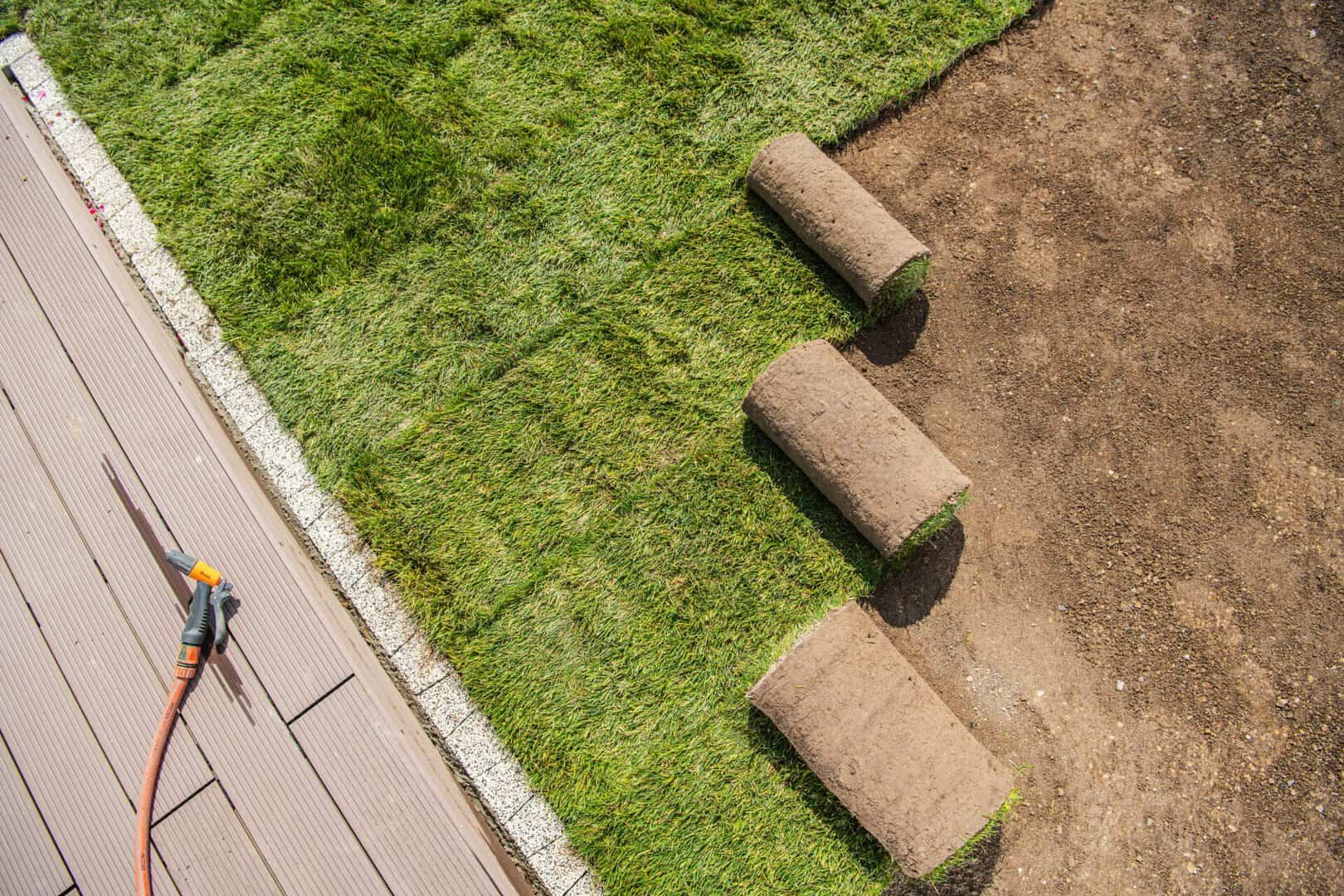When considering materials for your new driveway, you might wonder, “Why choose concrete driveways over asphalt?” This decision is pivotal for homeowners looking to balance durability, maintenance, and aesthetic appeal. Concrete driveways offer numerous advantages, including longer lifespan, lower maintenance, and a wider range of design options compared to asphalt.
In this article, we will explore the compelling reasons why concrete is often the preferred choice for driveways, helping you make an informed decision that will benefit your home for years to come.
Durability
When evaluating the durability of a driveway material, there are several key factors to consider. One of the most important factors is the material’s ability to withstand wear and tear. A concrete driveway offers exceptional durability, as it is a solid and resistant material that can handle heavy loads, such as vehicles, without showing signs of deterioration. Unlike asphalt, which can be prone to developing ruts and grooves over time, a concrete driveway maintains its smooth surface for a longer period.
Another crucial aspect to consider is how well the material can withstand weather elements. Concrete driveways are known for their ability to weather harsh conditions, such as extreme heat, heavy rain, and freezing temperatures. They have a high resistance to cracking and erosion caused by frost, which is a common issue with asphalt. This durability makes concrete driveways an excellent choice for regions with volatile weather patterns.
Additionally, the likelihood of developing cracks or potholes is an essential consideration. Concrete driveways have a lower chance of developing cracks compared to asphalt due to their rigid structure. This means less maintenance and fewer repairs over time. Cracks and potholes not only diminish the visual appeal of the driveway but also pose safety risks. Choosing concrete over asphalt can save you the hassle and cost of frequent repairs.
Concrete driveways are known for their durability compared to asphalt.
When it comes to durability, concrete driveways have a clear advantage over their asphalt counterparts. The key lies in the composition of concrete driveways, which combine cement and small pieces of rock to create a solid and resilient material.
Thanks to this unique combination, concrete driveways are able to withstand heavy usage and extreme weather conditions much better than asphalt. While asphalt driveways may develop cracks and potholes over time, concrete driveways remain intact and can last for decades with the right maintenance and weather conditions.
Concrete can withstand heavy vehicles and harsh weather conditions better than asphalt.
Concrete driveways are a superior choice over asphalt for their ability to withstand heavy vehicles and harsh weather conditions. Here is why:
Firstly, concrete driveways are known for their exceptional strength and durability. The composition of concrete, consisting of a mixture of cement, water, and aggregates, allows it to withstand the weight of heavy vehicles without cracking or sinking. By contrast, asphalt tends to soften under intense heat and can become susceptible to damage caused by heavy loads.
Secondly, concrete has a longer lifespan compared to asphalt. When properly maintained, concrete driveways can last up to 30 years or more, significantly outperforming the average lifespan of asphalt driveways, which typically last around 20 years. This longevity is due to concrete’s ability to resist the effects of freeze-thaw cycles, which can cause cracks and potholes in asphalt.
Furthermore, concrete driveways are more resistant to harsh weather conditions. Unlike asphalt, which softens in high temperatures and can become brittle in extreme cold, concrete maintains its structural integrity in a wide range of weather conditions. This makes concrete driveways less prone to damage caused by heavy rain, snow, and ice, as well as the frequent expansion and contraction that occurs during temperature fluctuations.
Maintenance Costs
When it comes to selecting a driveway material, it is important to consider the long-term maintenance costs. Concrete driveways offer several advantages over asphalt driveways in terms of maintenance.
Concrete driveways generally require less maintenance compared to asphalt driveways. The maintenance tasks for concrete driveways include regular cleaning, sealing, and crack repairs. These tasks should be performed annually or as needed. Cleaning involves removing dirt, leaves, and debris from the surface. Sealing the driveway protects it from moisture, chemicals, and UV rays. Cracks should be repaired promptly to prevent water penetration and further damage.
Factors such as climate, usage, and installation quality can influence maintenance costs for both concrete and asphalt driveways. Harsh climates with freeze-thaw cycles can cause damage to asphalt driveways, leading to more frequent repairs. Similarly, heavy vehicle traffic or improper installation can result in increased maintenance costs for both materials.
Regular maintenance is key to maximizing the lifespan of the driveway and ensuring long-term cost-effectiveness. When properly maintained, concrete driveways have a longer lifespan compared to asphalt driveways. The regular maintenance activities mentioned earlier help prevent cracks, potholes, and other damages, thus increasing the lifespan of the driveway.
How concrete driveways have lower maintenance costs in the long run.
Concrete driveways offer numerous advantages compared to asphalt driveways, especially when it comes to long-term maintenance costs. By opting for a concrete driveway, homeowners can enjoy a range of benefits that significantly reduce the need for frequent repairs and minimize overall maintenance expenses.
One of the key reasons why concrete driveways have lower maintenance costs is their stable base. Unlike asphalt driveways that rely on a flexible base, concrete driveways are built on a solid and stable foundation. This stability ensures minimal movement and shifting over time, ultimately reducing the chances of cracks, potholes, and other damage. Consequently, homeowners are spared from frequent repairs that can be both time-consuming and costly.
Moreover, concrete driveways are renowned for their superior durability. They are designed to withstand heavy traffic, extreme weather conditions, and other environmental stressors. Their robust nature allows them to maintain their structural integrity for a longer period, reducing the need for repair or replacement. This inherent durability translates into long-term cost savings for homeowners.
Another advantage of concrete driveways is that the cracks, if they occur, are less noticeable and disruptive compared to asphalt. Cracks in asphalt driveways tend to be more pronounced and can quickly turn into larger potholes. On the other hand, cracks in concrete driveways are more concealed and can be easily repaired without causing significant disruption to the entire surface area.
Asphalt driveways require more frequent sealing and repairs, leading to higher maintenance costs.
When considering the construction of a driveway, it is important to weigh the pros and cons of different materials. One such comparison is between concrete and asphalt driveways. While both options have their advantages, this article will focus on the reasons why concrete driveways are a superior choice when it comes to maintenance costs.
First and foremost, asphalt driveways require more frequent sealing and repairs compared to concrete. The black surface of asphalt absorbs more heat, causing it to expand and contract more rapidly with temperature fluctuations. This constant movement leads to cracks and fissures over time, necessitating regular sealing to prevent further damage. In contrast, concrete driveways are more resistant to temperature changes, resulting in fewer maintenance issues.
This frequent need for maintenance not only adds to the inconvenience of homeowners but also leads to higher costs. Sealing and repairing an asphalt driveway is both time-consuming and costly. On the other hand, concrete driveways, while not completely maintenance-free, generally require less attention and are less prone to frequent repairs. Their durability and longevity ensure that they withstand years of use without significant damage.
Additionally, the overall appearance of concrete driveways is more appealing and adds value to a property. The solid, clean look of concrete enhances the aesthetics of any front yard and provides a welcoming impression. In contrast, the dark color and rough texture of asphalt driveways can give a worn-out or less refined appearance.
Longevity
When it comes to choosing between concrete driveways and asphalt driveways, longevity is a crucial factor to consider. Concrete driveways have a clear advantage over asphalt driveways in terms of longevity, making them a superior choice for homeowners.
Several factors contribute to the extended lifespan of concrete driveways compared to their asphalt counterparts. The primary factor is the inherent durability of concrete. A concrete driveway is made from a mixture of cement, sand, gravel, and water, which creates a solid and rigid surface. This rigidity allows concrete driveways to withstand heavy loads, such as vehicles, without cracking or breaking, ensuring their longevity.
Additionally, concrete driveways can last over 30 years with minimal care because of their resistance to various environmental factors. Concrete is highly resistant to UV rays, extreme temperatures, and freeze-thaw cycles, which are common causes of damages to driveways. In contrast, asphalt driveways typically have a lifespan of around 20 years due to their susceptibility to these environmental factors, leading to cracks and potholes.
Another crucial factor affecting the longevity of asphalt driveways is their vulnerability to chemical spills, such as fuel and oil. These chemicals can weaken the asphalt surface, leading to accelerated deterioration and decreased lifespan. Concrete driveways, on the other hand, are more resistant to chemical spills, making them a better long-term investment.
In terms of cost-effectiveness over time, concrete driveways prove to be advantageous. Although initially more expensive to install than asphalt driveways, the extended lifespan of concrete driveways means that homeowners will save money on repairs and replacements in the long run. This durability factor, combined with minimal care requirements, makes concrete driveways a wise and cost-effective choice for homeowners.
In conclusion, the factors contributing to the longevity of concrete driveways, such as their durability, resistance to environmental factors, and chemical spills, make them a superior choice over asphalt driveways. With a lifespan of over 30 years and minimal care requirements, concrete driveways provide homeowners with a durable and cost-effective solution for their driveways.
Curb Appeal
Curb appeal plays a significant role in attracting potential buyers and increasing a property’s resale value. When it comes to driveways, concrete and asphalt are two common options, each with their own benefits. However, there are several reasons why concrete driveways should be preferred over asphalt in terms of enhancing curb appeal.
One major advantage of concrete driveways is their ability to contribute to the overall aesthetics of a property. With concrete, homeowners have the freedom to choose from various finishes, patterns, and colors, creating a visually pleasing and customizable look that can greatly enhance the curb appeal. This versatility allows homeowners to match their driveway with the style and architecture of the house, making it more attractive to potential buyers.
On the other hand, asphalt driveways may not offer as many options for customization. However, their advantage lies in their ability to blend well with the street and the surrounding neighborhood. This aspect is particularly important as it maintains the visual harmony and consistency within the neighborhood, thereby enhancing the overall appeal and resale value of a home.
Initial Cost
When comparing concrete driveways to asphalt driveways, one of the key advantages of concrete is the initial cost. Concrete driveways may have a higher upfront price than asphalt driveways, but they offer long-term cost savings that make them a better investment in the long run.
Firstly, concrete driveways have a longer lifespan than asphalt driveways. With proper maintenance and upkeep, a concrete driveway can last up to 30 years or more, while an asphalt driveway typically lasts around 20 years. This means that homeowners who choose concrete driveways will not have to worry about costly replacements as frequently as those with asphalt driveways.
Additionally, concrete driveways require less maintenance compared to their asphalt counterparts. Asphalt driveways need to be sealed regularly, usually every 3-5 years, to prevent cracks and crumbling. On the other hand, concrete driveways do not require as much maintenance, leading to fewer expenses over time.
Moreover, concrete driveways are more resistant to extreme weather conditions, such as hot summers and freezing winters. Asphalt driveways can soften and become damaged in high temperatures, requiring repairs and potentially leading to higher maintenance costs. Concrete driveways, on the other hand, are more durable and less likely to be affected by weather extremes.
Invest in Concrete Driveways with All County Landscape-Hardscape
In conclusion, the reasons why choose concrete driveways over asphalt are clear. Concrete driveways offer superior durability, lower maintenance, and enhanced aesthetic options, making them an excellent long-term investment for homeowners. With their extended lifespan and ability to withstand various weather conditions, concrete driveways provide benefits that asphalt simply can’t match.
When considering the installation of a new driveway, look no further than the professional concrete driveway services of All County Landscape Hardscape. Our expertise and commitment to quality ensure that your concrete driveway will not only meet but exceed your expectations, providing a beautiful and functional addition to your home for years to come. Contact us today to know more.




